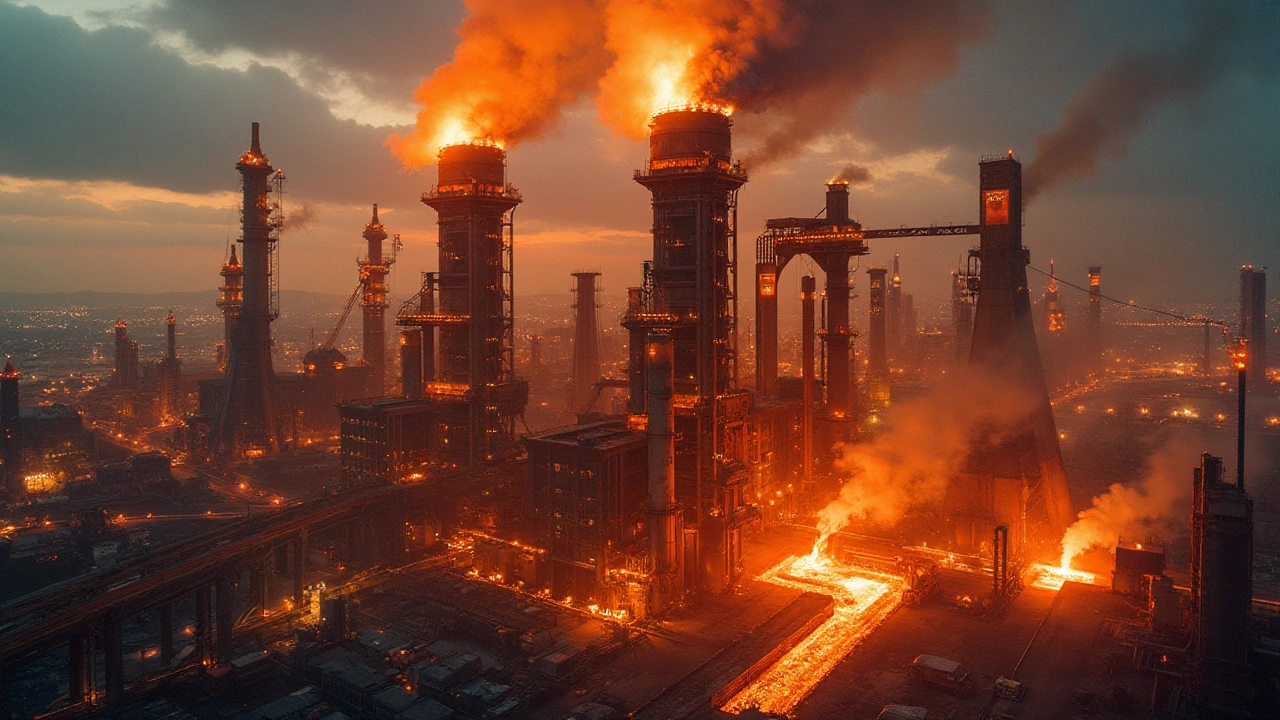Steel Company Guide: What It Is and Why It Matters
If you’re looking at metal projects, a reliable steel company is the backbone of everything from bridges to kitchen appliances. In plain terms, a steel company transforms iron ore and scrap into the steel you see on shelves, in buildings, and on the road. Knowing how they work helps you pick the right one for your needs.
Most steel firms run massive furnaces, rolling mills, and finishing lines. The size of the plant, the type of steel they produce (like carbon, stainless, or alloy), and how they handle waste all shape the final product. Modern players mix traditional processes with digital tools to cut costs and boost quality.
Top Steel Companies to Watch
Pittsburgh earned the nickname "Steel Capital of the World" because of its historic mills and innovative engineering. Today, the city still hosts high‑tech plants that set benchmarks for efficiency. Another classic name is Bethlehem Steel, the oldest steel company in the U.S., which paved the way for modern steelmaking methods before it shut down. Both stories show how legacy and innovation can coexist.
In India, companies like Tata Steel and JSW Steel dominate the market with large‑scale production and strong sustainability programs. They invest heavily in water recycling and low‑carbon technologies, making them good partners for eco‑focused projects. Their global reach also means they can supply consistent quality across borders.
Choosing the Right Steel Partner for Your Project
Start with quality certifications. Look for ISO 9001 or specific steel standards like ASTM or EN. These prove the company follows proven processes and can deliver material that meets safety codes.
Next, check lead times. Some firms keep large inventories, while others produce on demand. If you need steel fast, a company with a ready‑stock warehouse saves you headaches.
Price matters, but don’t chase the cheapest quote. Low cost can hide hidden fees or lower quality that ends up costing more in rework. Compare total landed cost, including shipping, handling, and any custom treatments.
Environmental compliance is a growing factor. Companies that report carbon emissions, use electric arc furnaces, or recycle scrap show they care about the planet—and often deliver more consistent steel grades.
Finally, consider customer service. A responsive sales team that can answer technical questions quickly makes the whole process smoother. Ask for references or read reviews from other clients in your industry.
Putting these pieces together helps you spot a steel company that aligns with your timeline, budget, and quality goals. Whether you’re building a skyscraper or a small furniture line, the right partner can make or break the project.
Remember, the steel industry evolves fast. Keep an eye on trends like hydrogen‑based reduction, AI‑driven quality checks, and circular economy models. A forward‑thinking steel company will help you stay ahead of regulations and market demands.
In short, choose a steel company with solid certifications, reliable lead times, transparent pricing, strong sustainability practices, and helpful support. With that combo, your project gets the material it needs without surprise setbacks.
Discovering America's Leading Steel Manufacturing Giant
In the vast landscape of American industry, the steel sector holds a fundamental place. Known for shaping skylines and providing materials for countless sectors, the largest steel company in the US stands as a juggernaut. This article explores America's biggest steel company, its history, market dominance, innovations, and impact on the economy. Through this exploration, readers will gain insight into how this industry leader has evolved and maintained its position.
